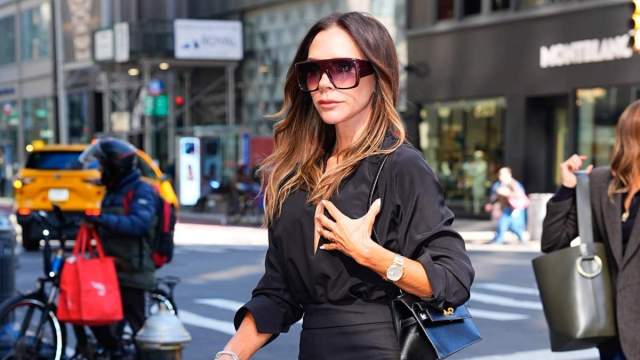This week, we take a look at some of the copyright lawsuits currently embroiling the fashion industry, including when it makes sense for a brand to pursue litigation over their products being duped and when they shouldn’t.
Last week, the parent company of Kizik, a footwear brand known for its “hands-free” shoes, sued Skechers over the latter’s own hands-free shoes, which Kizik says infringe on its century-old copyright. Skechers, in turn, called the accusation baseless and said Kizik does not own the concept of hands-free shoes.
It’s not the first time Skechers has been sued for similar practices. Both Nike and Adidas have previously sued Skechers over what they called shameless copying of another brand’s footwear styles and technologies. But the lawsuit is only the latest in a series of legal battles over IP infringement in the fashion business that are becoming increasingly common.
Since March, Lululemon has sued Costco over allegedly copying its products, and Coach sued the unbranded e-commerce site Quince. Deckers, the parent company of Uggs, has also sued both Quince and Costco this summer. Meanwhile, Rolex has aggressively protected its copyright through a series of lawsuits against watch resellers, which it alleges have been selling counterfeit versions of its watches. And multiple brands like Brandy Melville and Coach have sued Shein and Temu. Shein has also sued Temu over the same issues.
Legal experts told Glossy that these kinds of lawsuits are becoming increasingly common in the fashion industry and reflect a growing concern among brands that dupes are a real threat to their livelihood. But lawsuits are also costly and time-consuming, leaving brands to decide when, and if, they’re worth pursuing.
For Kizik, the lawsuit against Skechers is vital to protect the brand’s core value proposition.
“In a category as competitive and fast-moving as apparel and footwear, enforcing intellectual property isn’t optional, it’s critical,” said Gareth Hosford, CEO of Kizik and its parent company HandsFree Labs. “IP is what drives the willingness to invest in real innovation. If infringement goes unchallenged, it sends the wrong signals: that copying is a valid shortcut, inventors don’t matter, and businesses should not invest in innovation.”
Hosford added that legal action “isn’t something we take lightly,” but Skechers is threatening Kizik’s core business.
Mark Brutzkus, an attorney and partner at Stubbs Alderton & Markiles, LLP, told Glossy that the fear of what dupes can do to a business is well-founded.
“Dupes allow companies to generate massive profits amongst consumers unwilling to pay full price, essentially cannibalizing sales and market share from the original designer or manufacturer,” Brutzkus said. “Not to mention, for higher-end brands, dupes undercut the perceived brand value. These lawsuits can help protect essential IP elements associated with the brand, curbing competition.”
Research from the marketing consultancy WARC suggests nearly half of Gen-Z shoppers have purchased a dupe. Dupe-centric businesses like Shein, Quince and Italic have all grown massively in the last few years, oftentimes by advertising with the names of specific brands, as Quince has done. On Wednesday, Quince raised another massive round of funding with a new valuation of over $4.5 billion.
It’s clear that dupes are big business, but whether brands should sue is a different matter.
While product duping may be obvious to the casual observer, brands have had mixed success actually challenging them in court. Steve Madden, the founder of his namesake brand notorious for duping other products to the point of multiple lawsuits, has made the argument that his dupes aren’t damaging high-end brands like Alaia because they are in completely different price categories. In other words, the only people who would buy a $60 pair of Steve Madden flats that are visually similar to a $950 pair of Alaia flats are the people who couldn’t afford the Alaia flats in the first place.
This argument has been surprisingly successful in court. Thom Browne successfully won against Adidas in 2024 when the court ruled that there was a lack of “competitive proximity” between the two brands.
The legal fees and time spent in court and the uncertain outcomes can make lawsuits over duping less appealing, according to Brutzkus. In the Adidas lawsuit against Thom Browne, for example, Adidas sought $8 million in damages and profits. But the lawsuit has now stretched to nearly two years in litigation, and with each passing day, the costs of the lawsuit get closer to overshadowing the amount the brand would receive.
“In many cases, legal action is not worth it as legal fees will cost more than the damage, especially if there is no strong copyright protection in place,” Brutzkus said. “The reality is that, unfortunately, most dupes are legal and hard to block.”
But there are other things a brand can do to fight dupes, according to Erica Van Loon, who heads the copyright, trademark and media litigation team at law firm Nixon Peabody Intellectual Property. The cashmere brand Naadam launched a social media campaign last year against Quince. They posted several memes calling out Quince for its similar products and use of Naadam’s name in marketing without actually taking any legal action.
“There are other legal options that brands can pursue short of litigation, including using take-down processes or cease and desists, registering with Customs and Border Patrol to identify potentially infringing items at import, leveraging international enforcement procedures, and exploring non-IP claims such as health and safety violations, or warranty fraud,” Van Loon said. “However, if these procedures aren’t effective, brands should consider legal action against dupes that are damaging their brand’s reputation and bottom line.”
Executive moves
- Maggie Gauger, who heads Nike’s North American women’s business, is leaving the company to become the new CEO of Athleta. Nike has had a continuous series of executive leadership changes over the last year as new CEO Elliott Hill seeks to turn the business around.
- Rodrigo Bazan is stepping down as CEO of Thom Browne and will be replaced by Sam Lobban. Lobban is leaving his post as evp and gmm for apparel and designer at Nordstrom.
- The PGA Tour Superstore, a golf retailer, is getting a new CEO after Dick Sullivan’s retirement in April. Troy Rice was named as his replacement on Wednesday, just ahead of the PGA Tour’s Wyndham Championship, which starts today.
Other news to know
- Ahead of the August 1 tariff deadline, there are still several major U.S. trading partners that the Trump administration has yet to strike a deal with. A deal with the E.U. was announced on Sunday, which drew both criticism and faint praise from European politicians and business leaders. Bernard Arnault defended the deal, saying it was necessary to “avert a breakdown”.
- Kering continues to suffer from poor performance at its biggest brand. This week, it announced that Gucci sales had fallen 25%.
- Adidas said this week that U.S. tariffs could add as much as €200 million annually to the costs of its products.


